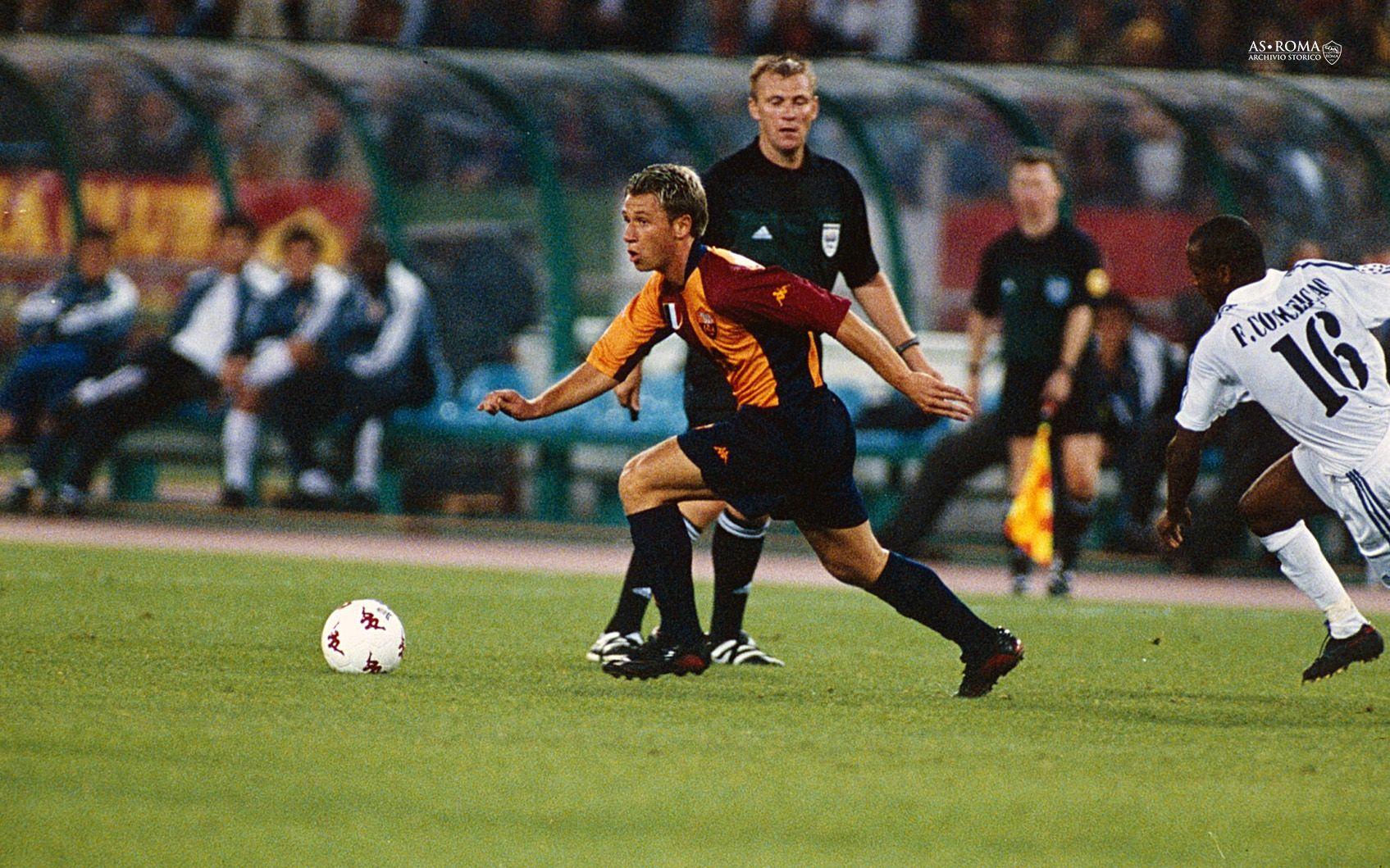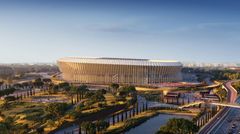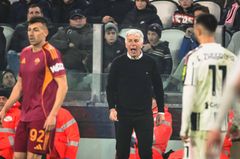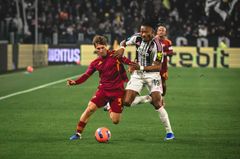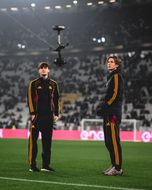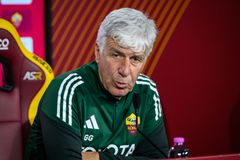
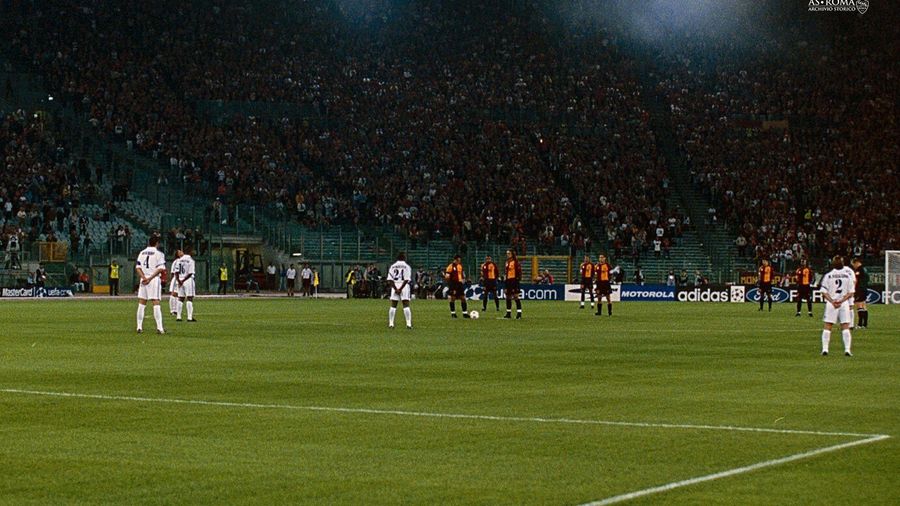
Everyone of a certain age on this planet probably still remembers 11 September 2001, in terms of what they were doing and where they were when the BBC started showing footage of the terrorist attacks on the Twin Towers in New York and the Pentagon in Washington.
It was a defining moment in modern history.
"The world will never be the same again," was a phrase uttered by so many, which turned out to be accurate.
Almost 20 years later, the world has changed. You can see that at airports, for example, with the range of security measures in place before and after departure. That was not all, however. Following those attacks, the geopolitical balance in the Middle East radically changed with so many related conflicts.
Roma lovers remember that day for another reason, as it was supposed to signify the club's long-awaited return to the Champions League.
The draw gave us Real Madrid
A few weeks earlier on 23 August, the Champions League draw pitted Fabio Capello's Roma against Anderlecht, Lokomotiv Moscow and Real Madrid in Group A.
The fixture schedule conjured up a Matchday 1 clash between Roma and Los Blancos at the Stadio Olimpico on Tuesday 11 September for what was set to be a thrilling encounter, given the calibre of the opposition, who were among the contenders to win the competition.
It was no coincidence that Real Madrid's star-studded line-up including the likes of Iker Casillas, Fernando Hierro, Roberto Carlos, Luis Figo, Raul and others earnt the Galacticos title. The only big name missing was new signing Zinedine Zidane, who had joined the club from Juventus that summer for a record fee of 150 billion lire, as the French playmaker was still serving a five-game suspension for headbutting Hamburg's Jochen Kientz in the previous season.
Everyone was looking forward to the event with a mixture of excitement and trepidation. The incredible speed of ticket sales suggested that a wonderful occasion at the stadium was on the cards.
Great expectations
The Roma jersey had recently had the Scudetto patch sewn onto it, after the club clinched the title on 17 June, and now wanted to make an impact in Europe.
Walter Samuel was in defence, Cafu and Vincent Candela were the full-backs, Emerson pulled the strings in midfield, and Gabriel Batistuta, Francesco Totti, Vincenzo Montella and Marco Delvecchio were all in attack.
The Serie A-winning squad that oozed such quality remained largely intact, except for Hidetoshi Nakata. There were some new arrivals, such as goalkeeper Ivan Pelizzoli, midfielder Lima and young forward Antonio Cassano.
"I've already booked accommodation in Glasgow," joked some Roma fans, in reference to the team's chance of reaching the Champions League final on 15 May 2002 in the Scottish city.
A surreal atmosphere
The levels of euphoria and excitement drastically dropped, however, just a few hours prior to kick-off.
At around 15:00 CEST, national broadcasts were interrupted to show live news coverage from the United States, where it was nearly 9:00 in the morning. The events would mark the United States forever.
Fundamentalist Islamic terrorist organisation Al-Qaeda hijacked four civilian aeroplanes. They intentionally crashed two aircraft into the north and south towers at the World Trade Center in New York, causing both skyscrapers to collapse soon after, resulting in serious damage to nearby buildings.
The third aeroplane headed towards the Pentagon and the fourth, which targeted the Capitol Building and the White House in Washington, crashed in a field in Pennsylvania.
It was a true act of war against the biggest global power, involving targets that symbolise the economy and government. Everything was shown on television and nothing was censured. You could see people, who were overcome with panic, throwing themselves out of skyscrapers in flames. Death and despair were everywhere.
There were almost 3,000 victims and there was talk of nothing else all over the planet. It was not the sort of event anyone could ignore. Mobile phones were pinging: "Switch the TV on, watch what's happening, I've never seen anything like it," was the gist of countless phone calls between family and friends.
A game overshadowed
Everything else paled into insignificance, especially football, and yet UEFA decided not to take any special measures involving the Champions League fixtures scheduled for Matchday 1.
Every game went ahead with a minute's silence and players wearing black armbands., including the clash at the Olimpico, near the Farnesina, the Ministry of Foreign Affairs and International Cooperation. A general feeling of fear was rife. Some supporters decided not to go to the match for fear of other attacks, while others did not want to be scared by the situation. What should have been a sporting spectacle was anything but.
The atmosphere in the stands was surreal and quiet. Nobody thought about getting chants going to support the team. The eyes of those in attendance were filled with fear and worry, especially when an aeroplane passed above the stadium. In normal circumstances, nobody would have noticed, but not that evening.
The match
Interest in the match was at a minimum. News came through via radio from Turkey that there was booing throughout the minute's silence at Galatasarary's stadium, where Lazio were the visitors. Indignation continued to rise, while the match was played out and reached its conclusion, with Real Madrid running out 2-1 winners.
Figo, Guti and Totti (from the penalty spot) got on the scoresheet. Abel Balbo struck the bar towards the end, as the Giallorossi went agonisingly close to clinching a draw. There was an initial feeling of regret, which quickly dissipated on second thoughts.
It was not the right time to be losing your temper about sporting matters.
"The right thing would've been not to play," Capello stated after the game.
It was true, particularly given that UEFA released another statement to announce the postponement of the Champions League fixtures scheduled for 12 September until the following month.
It certainly would have been right to do the same on that fateful 11 September 2001.

 Tickets
Tickets
 Shop
Shop














